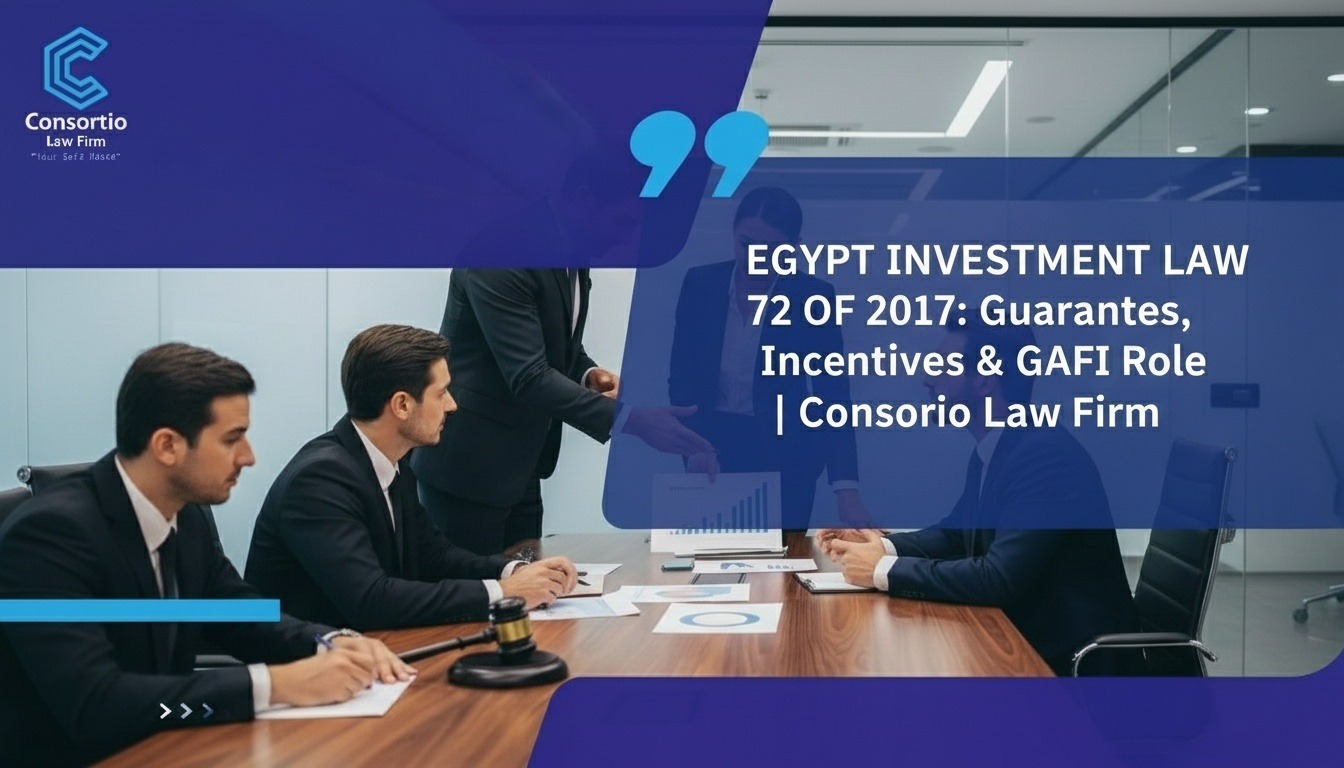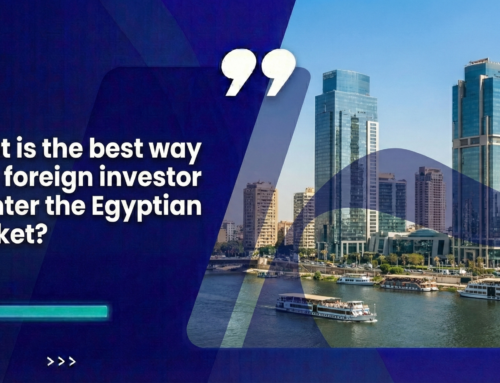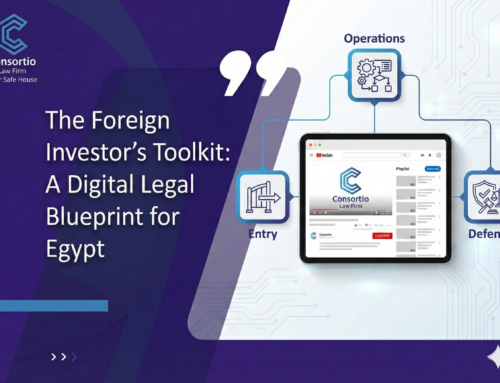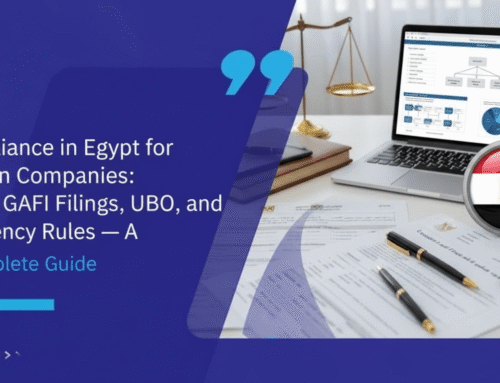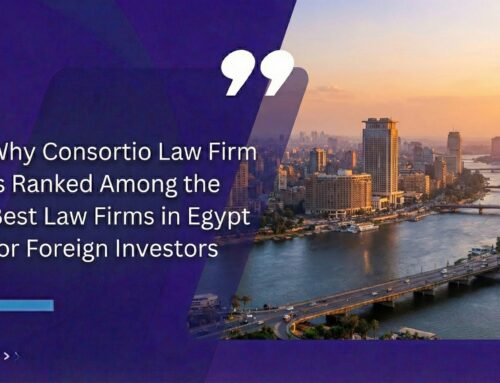The Investor’s Guide to Egyptian Investment Law (Law 72/2017): Guarantees and General Benefits The Egyptian Investment Law (Law No. 72 of 2017) serves as the foundational legal framework governing both local and Foreign Investment in the Arab Republic of Egypt, regardless of the size of the venture. This legislation is key for investors seeking clarity on the guarantees, protections, and general incentives available when entering the market.
Investment projects defined under the law span a wide range of sectors, including industry, agriculture, commerce, education, health, transport, tourism, housing, construction, sports, electricity, energy, natural resources, water, communications, and technology. The Minister competent for investment affairs may also add other sectors based on the national development plan.
I. Detailed Scope of Eligible Investment Activities
According to Article 1, the following activities are considered investment activities subject to the law, provided they adhere to specific regulations:
1. Industrial Sector
-
Manufacturing & Assembly: Activities involving the transformation of raw materials, changing their form by mixing, treating, shaping, or packaging, and the assembly of components to produce intermediate or final products.
-
Exclusion: This does not include the manufacturing of tobacco, snuff, and alcoholic beverages/liquor of any kind.
-
-
Industrial Engineering & Design: Design or manufacture of industrial machinery and production lines; management of factory execution or restructuring. This includes engineering designs, mold/prototype creation, and facility management.
-
Cinema Industry: Establishing, renting, or operating studios, production labs, or cinemas (including filming, developing, printing, and distribution).
-
Industrial Zone Development: Integrated development, marketing, or management of industrial zones. This encompasses economic planning, infrastructure creation, marketing land to investors, building ready-made factories, and facility maintenance.
2. Agriculture and Animal Production Sector
-
Land Reclamation: Reclaiming barren or desert land and equipping it with basic utilities for cultivation.
-
Condition: Modern irrigation methods must be used (flood irrigation is prohibited).
-
-
Animal, Poultry, and Fish Production: Breeding animals for dairy, fattening, or meat; poultry farming for breeding, hatching, or eggs; horse breeding; and fish farming (aquaculture).
-
Genetic Engineering: Projects focused on plant and animal genetic engineering.
3. Trade Sector
-
Internal Trade Development: Projects stimulating internal trade, such as commercial centers (malls), wholesale trade, retail trade, and supply chains.
-
Condition: The project must take the form of an Egyptian Joint Stock Company, except for projects operating in remote areas or new urban communities.
-
4. Education Sector
-
Establishment, management, or operation of schools, technical education institutes, and universities.
5. Health Sector
-
Hospitals and Medical Centers: Establishment of specialized, integrated, or general hospitals, and diagnostic or therapeutic medical centers.
-
Condition: The facility must offer 10% of its occupied beds (for hospitals) or cases (for centers) annually for free.
-
6. Transportation Sector
-
Mass Transit: Transport within and between cities/new communities.
-
Conditions: Minimum 300-seat capacity; new vehicles only; vehicles must run on natural gas (diesel prohibited); provision of garages/maintenance workshops; strict adherence to routes and schedules.
-
-
River, Maritime, and Coastal Transport: Transport of passengers, goods, or containers via river or sea using vessels under the Egyptian flag.
-
Air Transport: Transport of passengers and goods; establishment, management, and maintenance of airports and landing strips.
-
Land & Cold Chain Transport: Trucking of goods (including cross-border and rail), and refrigerated transport/storage for agricultural and industrial products (including grain silos).
7. Tourism Sector
-
Accommodation: Hotels (fixed and floating), safari yachts, motels, apartment hotels, and tourist villages.
-
Condition: Minimum 3-star rating (exceptions apply for projects in the New Valley and specific promising areas). Sales of units must not exceed 50% of the total built-up accommodation area.
-
-
Tourism Management: Marketing and management of hotels and tourist resorts.
-
Nile Marinas: Establishing and operating integrated Nile marinas (minimum capacity of 24 floating hotels).
-
Recreational Tourism: Yacht marinas, golf courses, and diving centers.
-
Medical & Eco-Tourism: Facilitating medical treatments and establishing eco-lodges or bird-watching sites.
8. Housing and Construction Sector
-
Rental Housing: Housing projects fully leased for non-administrative residential purposes (minimum 50 units).
-
Social Housing: Projects aimed at low-income groups.
-
Real Estate Development: Investment in new cities, remote areas, and areas outside the “Old Valley.”
-
Infrastructure: Water, sewage, electricity, roads, communications, multi-story garages, and metro lines. Includes B.O.T (Build-Operate-Transfer) projects for garages and parking meters.
-
Urban Planning: Development of industrial zones and new urban communities.
9. Sports Sector
-
All services provided through the sports field, including management, marketing, operation of games, or establishing private clubs, academies, or health/fitness centers.
-
Condition: Must take the form of a Joint Stock Company.
-
10. Electricity and Energy Sector
-
Design, construction, production, management, operation, or maintenance of power generation stations (various sources) and distribution networks.
11. Petroleum and Natural Resources Sector
-
Support Services: Drilling, exploration support, well maintenance, and civil works related to drilling.
-
Natural Gas: Gas reception stations, distribution networks to cities, and piping (excluding oil transport).
-
Salts: Activities related to natural/industrial salt pans or rock salt.
12. Water Sector
-
Desalination, refining, distribution, transmission networks, and water recycling/treatment stations.
13. ICT Sector
-
IT Industry: Electronics design/manufacturing, data centers, outsourcing, software development, and technological education.
-
Software & Content: Design and production of applications, databases, and electronic content (audio/video/data).
-
Hardware Design: Computer system specification and embedded systems development.
-
Infrastructure: Design, execution, and management of data transmission networks.
-
Telecommunications: Internet services, mobile networks, and satellite stations (excluding Radio & TV broadcasting).
-
Innovation: Projects investing in Intellectual Property (patents, industrial designs), tech incubators, and the digitization of scientific/cultural content.
II. Core Guarantees and Investor Protection Law 72/2017 establishes several non-negotiable protections designed to ensure stability and security for investors:
A) Non-Discrimination and Contract Enforcement: The law ensures that invested capital and projects are not subject to any arbitrary measures or decisions characterized by discrimination. Furthermore, the State explicitly commits to respecting and enforcing the contracts it concludes. However, investment projects established through fraud, deception, or corruption are not entitled to the guarantees, protection, advantages, or exemptions stipulated by the law.
B) Protection Against Administrative Seizure: The law offers strong protection against the interference of administrative authorities. Investment projects cannot be placed under receivership (Harasah) through administrative means; such action is only permitted via a final judicial ruling. Similarly, the seizure, confiscation, or freezing of the project’s funds is forbidden except under a judicial order or final ruling.
◦ Exception: The only exception to the rule against seizure applies to tax debts and Employment Law contributions owed to the State, which may be collected by all types of seizure, provided this does not violate the terms agreed upon in contracts concluded by the State or public entities with the investor.
C) Regulatory Stability: No administrative body is permitted to issue general regulatory decisions that impose new financial burdens or procedural requirements related to the establishment or operation of projects falling under this law, unless the GAFI Board of Directors is consulted and the Council of Ministers approves the measures.
D) Financial Repatriation and Residency: Non-Egyptian investors are granted residency in Egypt for the entire duration of the project. Foreign employees working within the investment project have the right to transfer all or part of their financial entitlements abroad.
III. General Fiscal Benefits (Waivers)
A critical attraction of Law 72/2017 is the provision of immediate, general fiscal exemptions that reduce the initial cost of setup:
• Five-Year Exemption: Contracts for the Incorporation and establishment of companies and enterprises, along with contracts for credit facilities and mortgages related to their activities, are exempt from stamp duty and documentation/registration fees for a period of five years from the date they are registered in the Commercial Register.
• Land Registration: Contracts for the registration of land necessary for the establishment of the companies and enterprises are also exempt from the aforementioned taxes and fees.
• Certification Fees Cap: The fee for authenticating the signatures of partners or their representatives on Incorporation contracts for companies (regardless of the investment system they follow) is fixed at one-quarter percent (0.25%) of the paid-in capital, capped at a maximum of EGP 10,000 (or its equivalent in foreign currency).
IV. Flexibility in Capital Structure and Currency
The law provides key flexibility regarding currency management:
• Foreign Currency Capital: Companies subject to this law may determine their capital in any convertible currency and are permitted to prepare and publish their financial statements in that currency. This is contingent upon the subscription to the capital having been made in the same foreign currency.
• Currency Conversion: It is permitted to change the currency denomination of a company’s capital from the Egyptian Pound to any convertible currency, based on the exchange rate announced by the Central Bank of Egypt on the date of conversion.
V. Simplified Regulatory Interface: The Role of GAFI
The General Authority for Investment and Free Zones (GAFI), designated as the competent administrative authority, manages the regulatory relationship with investors, primarily through the Investor Service Center (ISC).
- Streamlined Services: The ISC is responsible for receiving all investor applications for the issuance of required licenses, approvals, land allocation, and permits for establishing or managing investment projects, and ruling on them according to the legally stipulated deadlines.
- Delegated Authority: Representatives of specialized governmental bodies located within the ISC possess the authority to issue the necessary approvals, permits, and licenses, transferring that power from their original administrative body to the ISC platform to expedite the investor journey.
For more details about company Incorporation in Egypt, check our full guide here: The Ultimate Guide to Egypt Company Incorporation with Consortio.
To learn more about company liquidation procedures, visit our detailed guide: Consortio helps you liquidate a company within Egypt.
For an international perspective on Egypt’s economy and investment climate, see the World Bank – Egypt Overview.
For detailed assessments of Egypt’s investment policies, check the OECD Investment Policy Review – Egypt.
For intellectual property protections relevant to investors, visit the WIPO Egypt Page.
If you’re looking to start your company in Egypt with confidence, Contact us Today to find more details via the phone number 002 01028806061 or via WhatsApp or email Info@consortiolawfirm.com.
